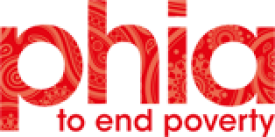PHIA Foundation
Partnering Hope Into Action (PHIA) Foundation, www.phia.org.in, is a Charitable Trust registered in 2005 in India. PHIA has a vision for a society free from poverty, exclusion and discrimination where all people live with justice, peace and dignity. PHIA believes that identity-based discrimination and exclusion are among the key structural causes of poverty. In order to address the issues of poverty, development interventions have to be purposive to work with those who are the most vulnerable and marginalised. This includes Scheduled Castes (SC) or Dalits, Scheduled Tribes (ST) or Adivasis, other backward classes, among others, and women, specifically from these communities who bear the brunt of the intersectionality of their social and gender identities.
"The foundation is working with the backward and underdeveloped villages in different states ""Digital literacy: create digital literacy among women in grassroots level
Implematation: Through networking provide knowledge on a chain basis like teaching 2 women and they will teach the next 2*2womens"""
PHIA’s multi-dimensional interventions and programmes are focused in the states of Bihar, Jharkhand, Madhya Pradesh and Uttar Pradesh. As highlighted in the recent report on Multi-Dimensional Poverty by Niti Aayog released in 2021, the policy think-tank of GoI, these four states are the poorest states in India on multidimensional poverty and inequality. PHIA also responds to humanitarian needs across the country with a focus on reaching the unreached and with the ethos of leaving no one behind.
PHIA works with a network of 55 civil society organisations, including organisations led by excluded communities and women. PHIA has a history of association with these organizations through various programmes which it has co-conceptualised and co-implemented. Together with these organisations, PHIA is building on the work done through the Poorest Areas Civil Society (PACS) programme of the DFID, UK. PACS (2009-2016) programme, successfully reached out to 9.6 million individuals (60% women) and helped create a network of over 23,000 Community Based Organizations (CBO’s). With 60% of the CBOs led by women, the programme had a significant impact in building women’s leadership and their participation at different levels.
PHIA continues to invest in the leadership and agency of the poor and marginalised communities so that they take lead in the process of their own development and access their rights and entitlements.
PHIA works closely with the State, at times in collaboration, to influence policy practice and bridge the gap in delivery of rights, entitlements and services through strong community mobilisation and civil society action. Some examples of present and past intervention of PHIA include:
a. PHIA is collaborating with the Labour Department in the State of Jharkhand to establish and run the State Migrant Resource Centre and Helpline. It has not only facilitated safe return of 1.8 million migrant workers during COVID 19 pandemic but continues to address cases of human trafficking, forced and bonded labour and exploitative work practices by aiding appropriate intervention from the state. In the process it is working with the state to develop policies and mechanisms to ensure safe migration for communities,
b. Bridging gendered digital divide through its ‘Internet Saathi’ programme which nurtured 22,356 digitally empowered women across 110 districts across five states and also created an enabling environment for them to challenge gendered social norms, caste-based discrimination and promote women led local entrepreneurship,
c. Facilitating community and individual forest rights for the tribal communities under the Forest Rights Act in the state of Jharkhand with a special focus on ensuring land titles for women,
d. Working with the local governance institutions and Gram Sabhas in 100 Gram Sabhas across five blocks in Jharkhand to address trafficking of women and girls and establish a community driven system of safe migration for women migrants who migrate for domestic works,
e. Working with the manufacturing units in the garment supply chain to capacitate and empower 4,500 women workers to make them aware of their safety and security issues including issues of sexual harassment at workplace,
f. Work at scale to link more than 80,000 households from Dalit and Adivasi communities to various social protection entitlements like pensions, work under MGNREGS, health insurance benefits, ration through PDS etc. across its focus states, and;
g. Through PHIA’s ‘It’s Possible’ campaign, PHIA is promoting gender equality and challenging gendered social norms and stereotypes by working with youth as change makers, on redefining masculinity and challenging and changing established notions and norms, through online and offline engagements.
PHIA currently (as of October 2022) employs 428 team members and has its offices in Bihar, Jharkhand, Madhya Pradesh and Delhi. It had a turnover of USD 2.39 million in the financial year 2021-22 and USD 1.77 million in the financial year 2020-21. Dr. Belinda Bennet is the Managing Trustee of PHIA and Mr. Anand Kumar Bolimera is its Honorary Director.
Issues:- Sustainable Livelihood, healthcare, sanitation, equality, inclusion and strong leadership of marginalized communities.







